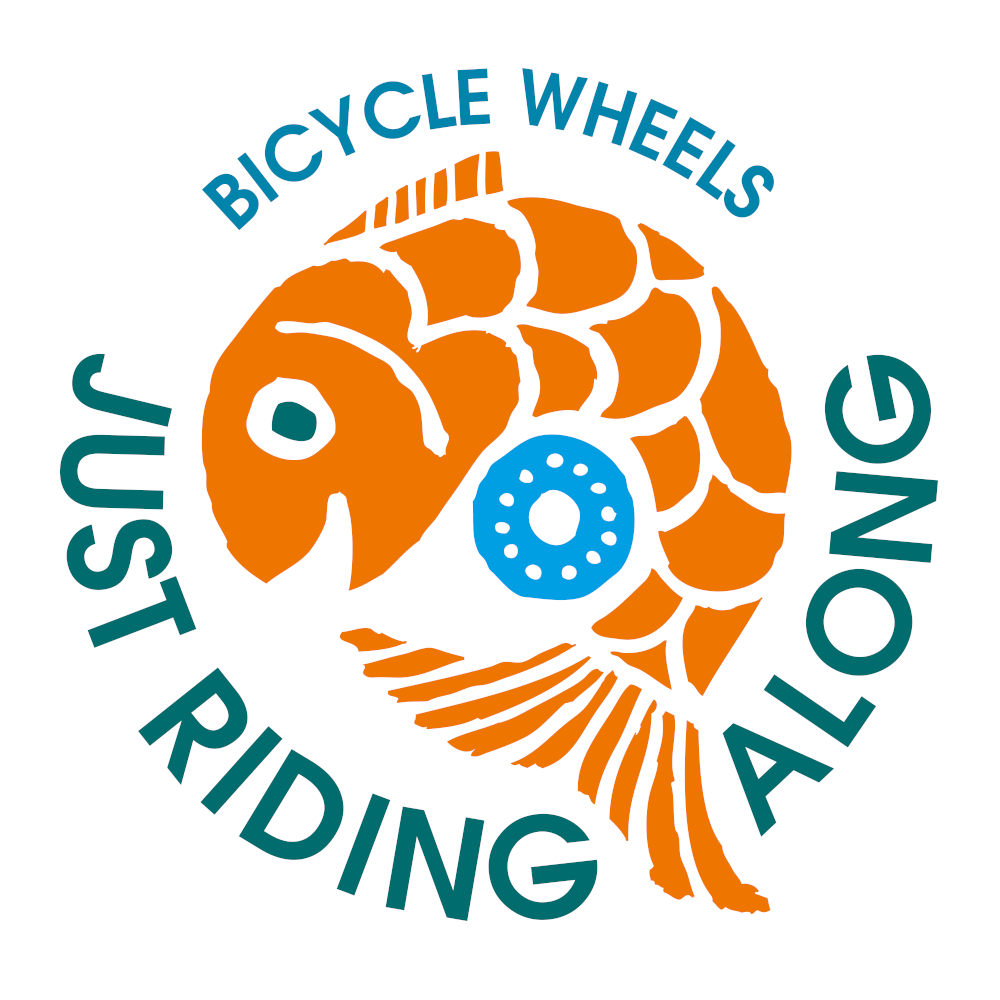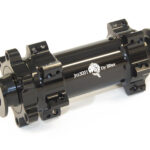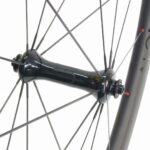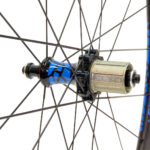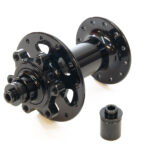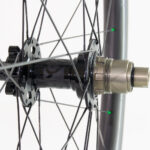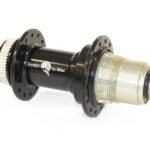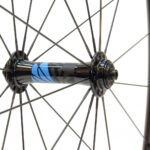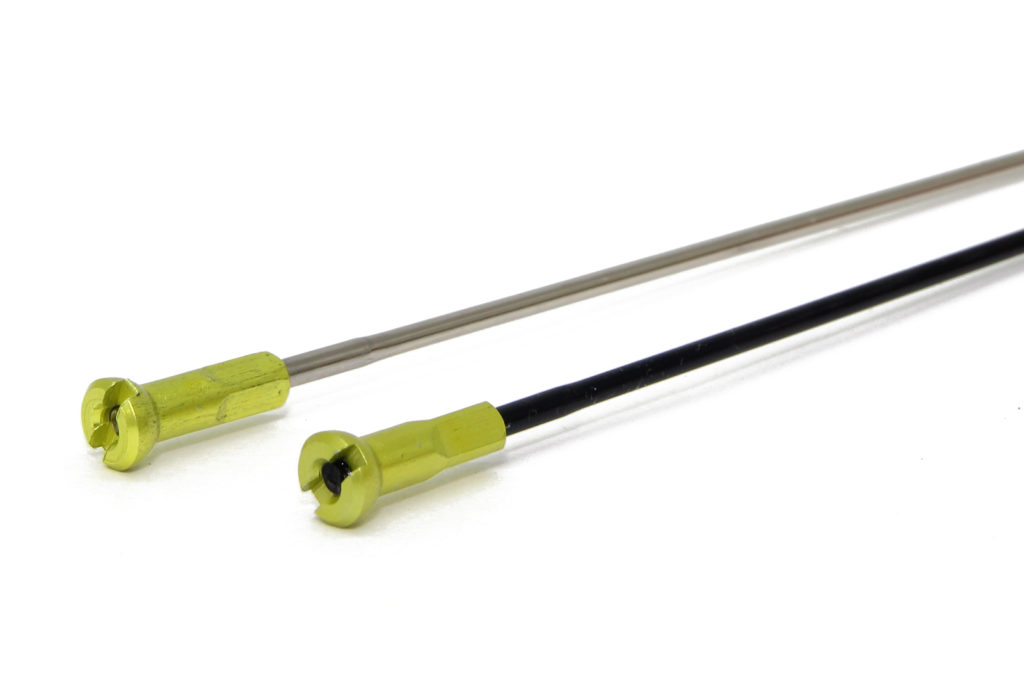
We always use Sapim spokes and nipples on every wheelset. Combined with a quality build it means we enjoy virtually no spoke or nipple failures in our wheels, and we won’t build with anything else. Sapim spokes have been made in Belgium since 1918 from high grade stainless steel.
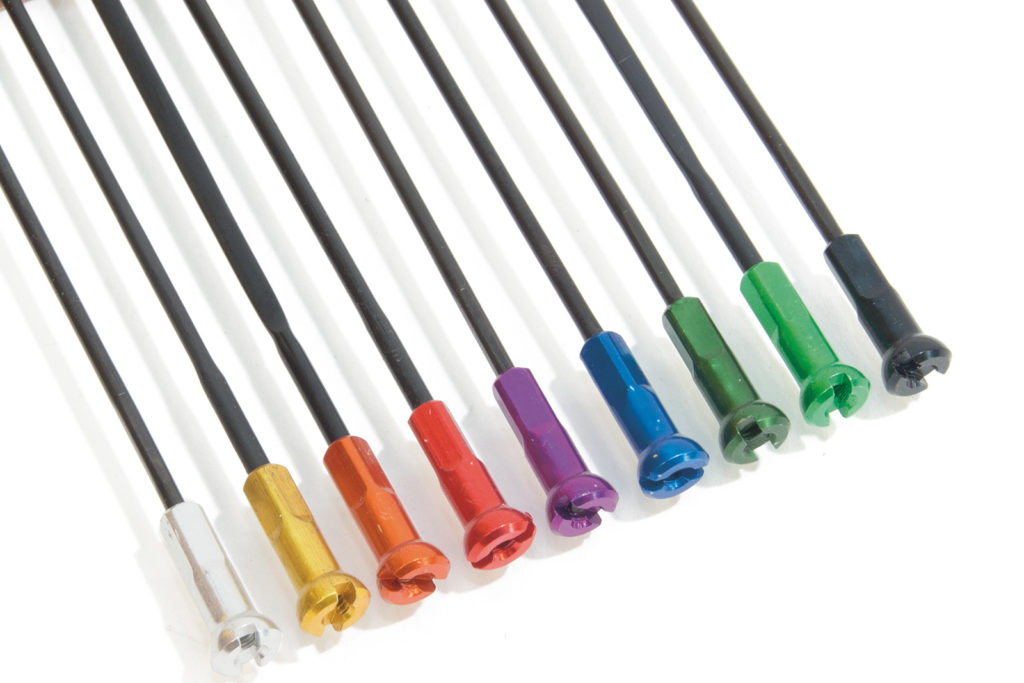
Spoke nipples
Choosing reliable spoke nipples is an important part of building good wheels. They are small and light but each have to withstand a force equivalent to 120kg.
We always use Sapim spoke nipples since these have proven themselves to be extremely durable over the years – better than any others we’ve tried. Problems we have seen with other spoke nipples are corrosion (especially from salt water), damage when building the wheel due to being too soft, and bad alignment in the rim. Sapim spoke nipples are extremely corrosion-resistant, they are very strong so don’t suffer any damage when building the wheel, and they are shaped so that they align well with the spoke – the head can rotate a little inside the rim preventing breakages.
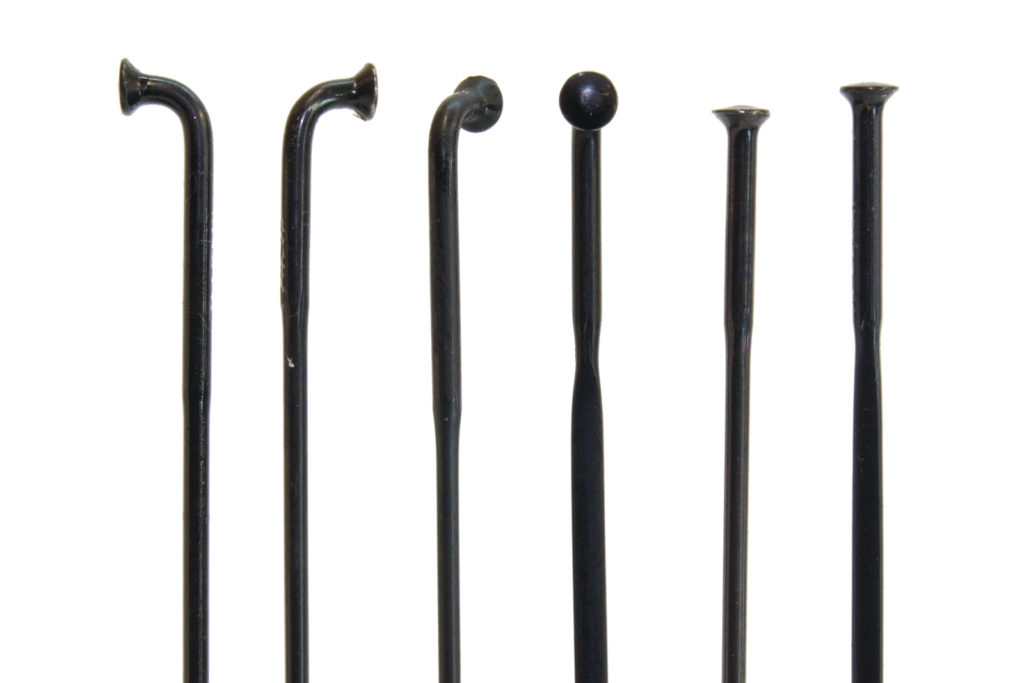
Spokes
We only use Sapim spokes in our wheels due to their proven reliability, and we experience almost zero failures. Lower quality spokes can fail from fatigue since each spoke loses and regains tension every time the wheel rotates.
we build wheels with…
Sapim Race – 6g per spoke, the strongest we use for the drive side of rear road wheels and where extra strength is requested in stronger wheelsets.
Sapim D-Light – 5.2g per spoke used in most disk-brake road-disk and MTB wheels as standard, strong and light.
Sapim Laser – 4.8g per spoke light spoke used in rim brake road wheels.
Sapim CX-Ray – 4.8g bladed spokes used on our carbon road wheels as standard, available as an upgrade on all other wheels.
J-bend or Straight-pull ?
This describes the way the spokes and hubs are attached, with spokes having either a J-shape bend or being straight along the whole length. Both equally strong, we have no failures with either spoke type so where we offer an option it’s your choice. Many people prefer the tidy look of straight-pull spokes and some hubs are lighter. J-bend are more traditional and spokes might be easier to replace if you have an accident when you are travelling further afield.
straight-pull hubs and wheels
j-bend hubs and wheels
Bladed spokes
We are often asked about if it is worth upgrading to bladed spokes. Sapim CX-Ray are a type of bladed spoke but they are much more expensive than round spokes. They are forged in a way that leaves the middle section between the head and thread as a flat profile, 0.9mm deep and 2.3mm across. This thin cross-section gives them a small aerodynamic advantage, and Sapim also claim “extremely high fatigue test results” because of the forging process. But, in our experience we don’t experience fatigue failures in any of the other Sapim spokes we use. So most of our aluminium wheelsets come with round profile spokes as they more economic and Sapim CX-Ray options are available at between £70 and £100 per pair of wheels for riders after every last bit of energy saving. Just Riding Along carbon road wheels use CX-Ray spokes as standard.
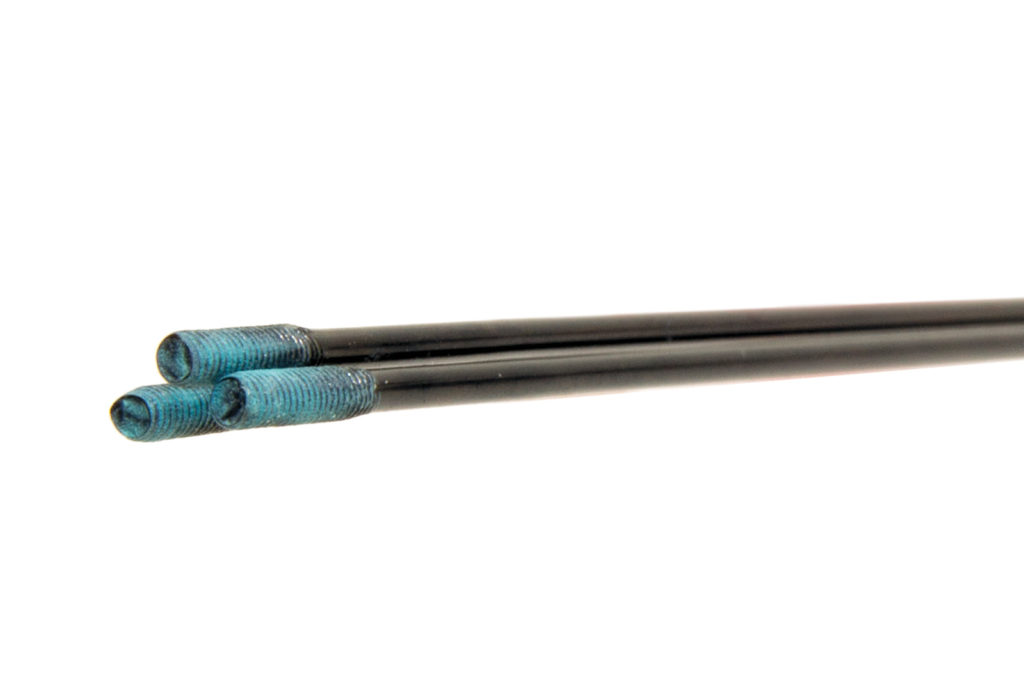
Spoke preparation
It’s all very well having the best spokes and nipples (which Sapim are), but if you don’t prepare them properly there will still be problems. When an unprepared spoke is at high tension it becomes difficult to turn since it “binds” with the nipple – you turn the spoke nipple but the spoke twists rather than threading onto the spoke, which causes damaged spoke nipples, twisted spokes, and is just generally hard to build a perfect wheel since small adjustments are impossible. So all of our spokes are degreased in an ultrasonic bath before being individually prepared with Wheelsmith Spoke Prep, a coating which is painted onto the threads. This completely eliminates binding as well as protecting against corrosion by placing a barrier between the spoke and nipple, and also makes the wheel much easier to true in future. It’s a slow process applying and drying the spoke prep, but makes a dramatic difference to the wheel performance and building process – one of the reasons we won’t work on anyone elses wheels.
